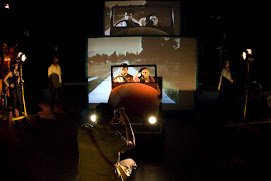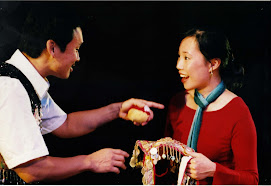Just back from the OzAsia Festival Symposium, and thinking about that whole vexed issue of using economic arguments to justify support for the arts. This was a tension throughout the weekend—and not always an underlying one.
In the last few years the favoured argument seems to be that a robust arts community increases the ‘liveability’ of a city or state, increasing its attractiveness for business investment, thereby providing jobs, et cetera, et cetera. What concerns me is not so much the truth or otherwise of these assertions, but the fact that we’ve jettisoned the language of culture and aesthetics in favour of the language of economic-impact studies—the language of politicians, in other words. And I think this concession, this shift to economic rather than cultural argument, is dangerous.
It’s dangerous because—thanks to widespread cultural illiteracy and a largely debasing mass media—most Australians have no idea why public support for the arts is worthwhile. So even though politicians tell us we’re living in an era of unprecedented (material) prosperity, the arts are starved of vital subsidy, and arts education is sidelined as irrelevant to the New World Economy. Then in a stroke of Orwellian cunning, that lack of appreciation is used as a rationale to continue not funding the arts.
Back to OzAsia, an excellent and much needed initiative, putting a bit of cultural diversity back onto the arts table. A table which—after a brief 1980s/early 90s flirtation with rye and pitta and Vietnamese pork rolls—has reverted to white sliced. (Although I must admit that when I read clunky sentences like: ‘Australian artists that identify with an Asian heritage’ various bells start ringing.) The symposium brought together practitioners, academics, arts administrators and representatives from a range of funding and state and federal organisations. So saying … when governments use the arts to spearhead trade programs or diplomatic initiatives, what companies and kinds of work do they chose to sponsor? Large dance companies, classical music ensembles, circuses? Productions guaranteed to make a big splash. But what about that small group of independent artists developing a more risky or experimental project, or beginning a long-term collaboration? Thank goodness then for Asialink, who seem to understand that professional relationships are built slowly, and that good work, especially that which crosses the boundaries of language and geography, takes time as well as resources.
The highlight of the symposium for me was undoubtedly the keynote paper from Calcutta-based writer, theatre director, cultural critic and independent scholar, Rustom Bharucha. It’s difficult to summarise because of the wide range and complexity of the issues he addressed. But here goes … Drawing on his 2006 book Another Asia, he exposed the capitalist bones of this hugely heterogeneous body called ‘Asia’, queried the word ‘enmeshment’, explored issues of nationalism, exchange, creative process, community, intercultural dreaming—and much, much more. It was passionate and provocative, eloquent and erudite, and I only wish there had been more time to discuss some of the ideas he raised.
Seems appropriate then to end with this favourite quote from Edward Albee: ‘Theatre tells us who we are, and the health of the theatre is determined by how much we want to know.’
26 September 2007
Subscribe to:
Post Comments (Atom)
+Photo+Leah+McGirr+3.jpg)




No comments:
Post a Comment